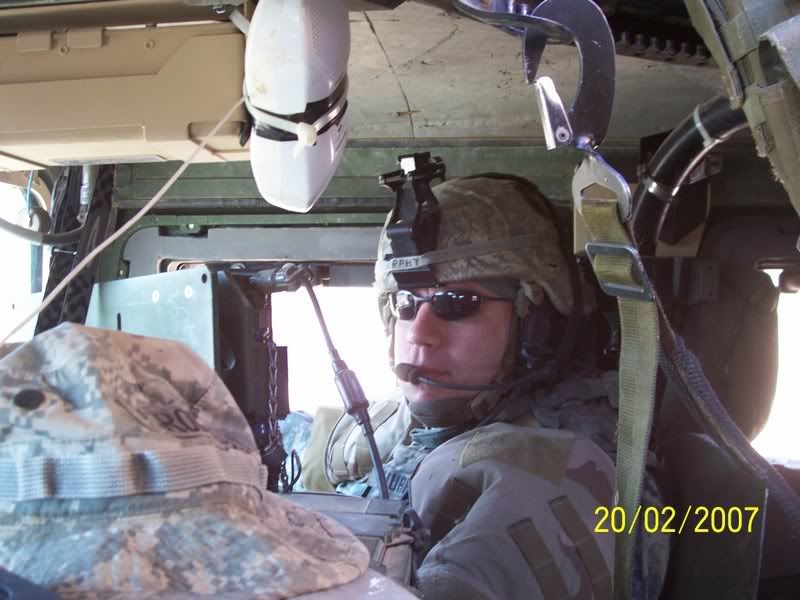Are we pot committed in Iraq?
In my last apparently controversial blog entry my mom mentioned the 'gambler's fallacy' regarding whether or not we're continuing in Iraq because we fallaciously believe we're committed to doing so.
I'm going to attempt to work that out a bit here. As I start typing this I'm trying not to hold any opinion, and you'll be reading me working the problem out on paper. I sincerely doubt I'll be able to arrive at an answer, but it's an interesting intellectual exercise at 6am while I'm watching the Steelers beat up on the Browns (10-0 at the half).
Re: the gambler's fallacy. In poker we call that being 'pot committed'. Essentially you have so much already invested in the hand that you must continue to play. But the decision to continue play isn't made in a vacuum. It's a function of the amount already invested vs. the amount needed to continue, the odds of the hand you're playing, and the history/behavior of the player with whom you're contending.
Are we pot committed in Iraq? First, what must we continue to invest, and what are the potential gains?
The continued investment is difficult to conceive. The Iraq working group chaired by James Baker listed several options. I think however the option put forward by Senator McCain of increasing troop strength for a time would be more likely to gain us success. That and a shift back to more offensive tactics. Certainly a strong continued presence in the country would be required, with at least present troop levels maintained.
The potential gains are even more nebulous. To be honest we wouldn't gain much through any perceived victory. But we stand to lose a great deal. The end result could be a religious civil war across all of Islam. And since Islam sits on the largest centralized oil reserves in the world that would be bound to have a disastrous effect on the global economy. The reality probably wouldn't be that extreme, but you'd certainly see Iraq split into three factions along Sunni/Shia/Kurd lines. The Shia majority would likely leave the Kurds alone. The Peshmerga are fierce and brutal fighters who wouldn't pander to public opinion the way we must do and would crush any insurgency in their territory utterly. The Sunni would probably be subjected to attempted genocide or secular/tribal cleansing. The enmity between Muslim, Serb and Croat was neighborly disagreement compared to the level on which these people can hate.
How much have we invested thus far?
The last monetary figure I saw was on the order of 387 billion dollars. Additionally the lives of 3000 Soldiers, Marines, Sailors and Airmen (some of whom were my personal friends), and the countless man-hours of individual service members and contractors.
Can we afford to cast this aside? Not easily. Much national pride and political capital sits in the pot. To fold now might lose us a great deal of respect in global affairs and cause us to have to bargain from a weakened position later.
What are the odds of us winning?
This is much more difficult. I'd almost be likely to say it can't be done at this time. To truly engage and defeat the insurgency would require tactics so barbaric and violent that US public opinion would have us on the way home and on trial for crimes against humanity, and would damage our military's social standing probably beyond repair.
The tactics required would in my opinion be Alexandrian/Roman/Nazi. Entire villages known to support the insurgency would have to be 'depopulated'. Either through just putting the people on the street and plowing the village under, or driving in and killing everything that runs, walks or crawls. You can't buy these people off. They don't stay bought, and there's no concept of loyalty outside their tribe.
Which leads to the last point. How has the player we're contending with played hands like this in the past? The answer is, very well. The Arabs are particularly skilled at insurgency and preservation of their culture despite pressing influence from the outside world. They've only historically succumbed to brutal totalitarianism in the past, and are unlikely to ever accept a democracy foisted upon them from outside their society.
Sorry, no answers here in the end. It's a problem who's complexity is beyond my ability to solve. But I hope I've shown enough of my work (yes, I'm making a calculus analogy) that maybe someone smarter than me can work the other analogy (the poker one, thanks mom) a bit further.
Less than a week and I'm on my way home. I have today off so I'm doing some packing and getting a box shipped off. I'm also going to hit the gift shop on the east side and see what other fun goodies they might have. Also my last chance to really hang out with my friend Dan as he's an IRR soldier who'll rotate home for good while I'm home on leave and if history is any indicator I'm unlikely ever to see him again.
Be well all, and may the force be with you.

No comments:
Post a Comment